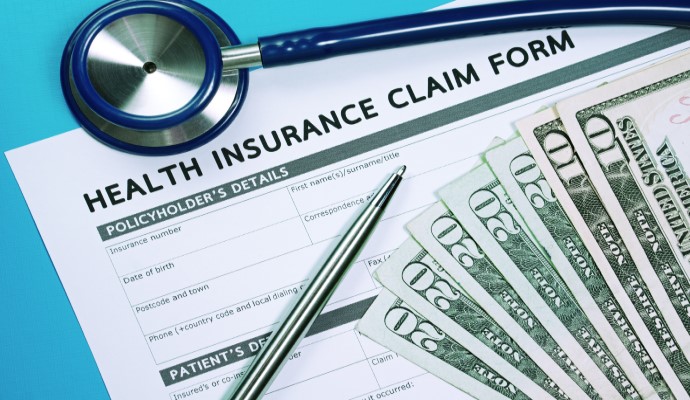Surprise Billing Action Needed, But Hospitals Urge Congress to Wait
A new report from HHS underscores the urgent need for a federal surprise billing solution, but AHA and other hospital groups hope Congress will wait until after the COVID-19 pandemic.

Source: Getty Images
- Lawmakers are focused on addressing surprise billing through federal legislation, but providers do not want the next coronavirus stimulus package to prohibit the practice that can cost patients thousands of dollars in unexpected healthcare costs.
A report released by HHS and the Office of the Assistant Secretary for Planning and Evaluation (ASPE) late last week summarized research conducted by the federal government on the prevalence of surprise medical bills, as well as recent actions Congress and HHS have taken to address surprise billing, including the requirement in the Coronavirus Aid, Relief, and Economic Security (CARES) Act that health plans cover COVID-19 testing costs without any cost-sharing and the prohibition of balance billing in the terms and conditions of Provider Relief Fund payments.
Progress has been made since the President’s June 2019 executive order calling for the end of surprise billing but Congress has yet to implement a nationwide solution to the “expensive and unfair practice,” according to HHS and ASPE.
“In order to effectively address surprise billing, federal legislation is needed to apply protections to all patients on a consistent and comprehensive basis. Legislation needs to be simple and fair for patients and not place implementation barriers on health plans, insurers, and providers,” their report stated.
The COVID-19 pandemic has derailed many efforts to pass federal legislation addressing surprise billing, including H.R. 5800, the Scott-Foxx “Ban Surprise Billing Act,” and H.R. 5826, the Neal-Brady “Consumer Protections against Surprise Bills Act of 2020.”
READ MORE: 20% of Elective Surgery Patients Receive a Surprise Medical Bill
Both surprise billing bills were approved by separate House committees right before the COVID-19 pandemic hit the US in March.
But the pandemic is underscoring the urgent need to address surprise billing, HHS and ASPE stated.
“The general disruption of local health care delivery systems caused by the COVID-19 public health emergency (PHE) has raised concerns about the costs related to COVID-19 testing and treatment and the potential for surprise billing in this environment,” according to their report.
In light of these concerns, some Congressmembers are considering including surprise billing solutions in upcoming COVID-19 relief packages.
But hospitals recently urged lawmakers to reject surprise billing proposals in upcoming COVID-19 legislation.
READ MORE: Studies Examine Surprise Billing for Ambulance Rides, ASC Visits
“Legislative proposals that would dictate a set payment rate for unanticipated out-of-network care are neither market-based nor equitable, and do not account for the myriad inputs that factor into payment negotiations between insurers and providers,” the American Hospital Association (AHA) and other national organizations representing healthcare providers said in a July 30th letter to Congressional leaders.
“These proposals will only incentivize insurers to further narrow their provider networks and would also result in a massive financial windfall for insurers,” the letter continued. “As such, we oppose the setting of a payment rate in statute and are particularly concerned by proposals that would undermine hospitals and front-line caregivers during the COVID-19 pandemic.”
Hospitals are projected to lose $323 billion in 2020 because of pandemic-related expenses, according to the AHA. Those losses could also increase if the nation is hit by a second wave of the virus, the hospital group warned.
But if Congress does move forward with addressing surprise billing in COVID-19 relief legislation, the groups asked lawmakers to implement a solution that “would completely remove the patient from the middle of payment disputes between insurers and providers, while also preventing the federal rate setting approach that tilts the scales in favor of insurers.”
Hospital groups have backed surprise billing proposals that include an arbitration process or independent dispute resolution method in which providers and payers submit a proposed payment to a neutral arbitrator who makes the final decision about how much is paid out.
READ MORE: Physicians Hail New York’s Surprise Billing Law as a Success
Both the Scott-Foxx and Neal-Brady bills include some type of arbitration process, but the Neal-Brady bill leans heavily on a mediated negotiation process, with the loser paying the administrative costs.
In the Scott-Foxx bill, an arbitration process would only be triggered for surprise billing claims over $750. For all other surprise bills, health plans would pay a benchmark rate for out-of-network care.
Hospital groups prefer an arbitration process because, from their perspective, it addresses the root cause of surprise billing: gaps in insurance coverage.
“Patients should have access to a comprehensive network of providers, including in-network physicians and specialists at in-network facilities,” leading hospital groups say. “Health plans should provide easily understandable information about their provider network, including accurate listings for hospital-based physicians, so that patients can make informed health care decisions. Federal and state regulators should ensure both the adequacy of health plan provider networks and the accuracy of provider directories.”
The Trump Administration requires a federal solution to surprise billing to ensure patients receiving emergency care do not should the extra costs billed by a provider out of their plan’s network.
For those undergoing schedule care, the Administration requires patients to receive information about whether providers are in or out of their network and what costs they may face.
Additionally, the Administration requires a federal surprise billing solution to eliminate the unexpected medical bills from out-of-network providers the patient did not choose. And the solution must meet the three principles without increasing federal healthcare expenditures.
